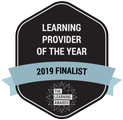
Least restrictive practice: Training Courses for working with disturbed and challenging behavior, including aggression and violence.
Including RAID®, PBS (Positive Behavior Support), de-escalation, anger management, and debriefing. For professionals working to achieve safe wards, safe homes, and safety for everyone.
The Association for Psychological Therapies is a leading provider of training in mental health and related areas. To provide a proper solution you must cover the relevant areas from the courses below. We can bring any of them to your own organization, for maximum cost-effectiveness, and up to 15 people can attend.

The RAID® Course. The positive approach to working with disturbed and challenging behavior.
A 3-day course.
A relentlessly positive approach to working with disturbed and challenging behavior.
The 3-day RAID® course is a leading positive psychology approach for tackling disturbed and challenging behavior at source: over 20,000 professionals have attended it. It is a comprehensive approach which teaches staff a philosophy and practice not only to deal with disturbed and challenging behavior when it occurs, but also to prevent it by tackling it at source. Staff feel pleased to share a unified system and to know what they are doing and why they are doing it, while clients delight in a relentlessly positive and empowering approach. The essence of the RAID® approach is to play down disturbed and challenging behavior as far as safety allows, and to nurture and develop positive behavior so that it systematically overwhelms and displaces the challenging behavior.

Positive Behavior Support
A 3-day course.
This course meets demands for a thorough, consistent and values-led approach to Positive Behavior Support.
The course covers the background and rationale for PBS and then looks at understanding an individual’s needs, analysing their behavior and understanding the role it fulfils. Positive and proactive, the training will empower delegates to develop individual PBS plans aimed at improving their clients’ environment and wellbeing, thus decreasing the likelihood of disturbed behavior. Using skills and understanding from the course delegates will be able to develop specific client-centred plans, also considering their situation and family / carers.
Given that some incidents will inevitably still occur the course also covers steps to manage a crisis and to continually review and improve the plan.
This is a powerful approach that improves the environment and wellbeing of both clients and staff. This is the only PBS course that is APT accredited and gives access to relevant web-based APT resources after the course.

Aggressive-Behavior Control: The ABC Course™
A 2-day course. (1-day version also available.)
Powerful non-physical techniques for handling aggression and violence in the least restrictive way.
Whether you simply want to be effective in controlling aggression or whether your focus is on least restrictive approaches, this course is for you. The 'original' of courses on the least restrictive management of aggression it has been attended by thousands of professionals. Providing the foundation knowledge on how and why anger and aggression develop, it shows: how to prevent aggressive and violent incidents (both to oneself and others), key techniques for responding to an actively aggressive or violent person, and what to do after an incident has been resolved. Everything you need to know about least restrictive responses to anger, aggression and violence.

CBT Plus, for Anger and Violence.
A 3-day course.
This is the new version of APT's Anger Management course, focusing on working with individuals (and groups) who are habitually angry and sometimes violent. It examines the potential problems of working with aggression, but principally focuses on strategies for helping people with such problems overcome their anger and violence.

Preventing PTSD after major events, at work and elsewhere.
A 3-day course. (2-day version also available.)
It is difficult to know what to do after a major incident, but 'nothing' is rarely the best option.
Major incidents such as patient-suicide, assaults, severe self harm, hostage takings etc can be very stressful for the staff concerned. Through lecture, case study and role play, this course examines how best to respond to such situations to minimize the stress; when it's best to say little or nothing, when to get a group of staff together, what to say, what procedures to follow, etc. It provides very clear guidelines in an often confused and difficult area.

Providing Good Clinical Supervision.
A 2-day course.
This course is for professionals working in mental health and related fields who want to provide high-quality clinical supervision that is both effective and ethical.
Clinical supervision is a crucial process, but its purpose is often misunderstood. Should you ensure the supervisee is ‘doing it right,’ act as a sounding board for clinical thinking, or something else entirely? This course clarifies the aims of clinical supervision, introduces an effective model, and provides practical tools for setting up and delivering strong supervision contracts.
By the end of the course, you’ll feel confident in your ability to deliver effective supervision, whether one-to-one or in groups, ensuring it benefits both supervisees and their clients.


